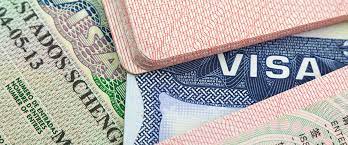Without Warning, the US Revokes Hundreds of International Student Visas
International students in states like California, Massachusetts, Ohio, Tennessee, Arizona, and beyond have been shocked to discover their visas were abruptly revoked without prior notice or clear explanation. Reports indicate this is part of a nationwide crackdown by the Trump administration, though officials have provided little clarity on the reasons behind these actions.
Surprisingly, some students found their visas revoked for minor infractions such as traffic violations. “The government appears to be cancelling visas and deporting students over issues that previously would not have attracted any attention,” said Ahilan T. Arulanantham, Faculty Co-Director at UCLA’s Center for Immigration Law and Policy, in an interview with The Los Angeles Times. “In some cases, there are no criminal charges at all — just simple citations.”
With little communication from the authorities, affected students have started compiling their own records to track these revocations. The Guardian reports that students from over 50 universities nationwide found their visas revoked around April 4.
Several leading universities have been impacted, including UCLA, UC Berkeley, UC Santa Cruz, and Stanford. Students at Arizona State University, Harvard, Columbia, the University of Tennessee, and others have also faced visa cancellations.
Notably, Senator Marco Rubio recently claimed responsibility for over 300 visa revocations, directly linking them to students participating in pro-Palestine demonstrations. “It could be even more by now,” Rubio said at a press event in Guyana on March 27. “We’re doing this daily. Every time I spot one of these agitators, I revoke their visa.”
This wave of cancellations has renewed concerns about the controversial “Catch and Revoke” initiative by the State Department. The program reportedly uses AI tools to monitor visa holders’ social media for links to groups designated as terrorist organizations by the US, like Hamas. Experts warn this approach is vulnerable to errors. Faiza Patel of the Brennan Center for Justice noted that the system risks making “rudimentary mistakes.”
Further reporting by journalist Ken Klippenstein uncovered a sensitive State Department directive, signed by Rubio, instructing officials to scrutinize the social media of both new and returning international students. The directive specifically targets students allegedly involved in “pro-Hamas events,” a term some Trump officials have used to describe pro-Palestine activism on campuses.
Source: Allafrica.com



